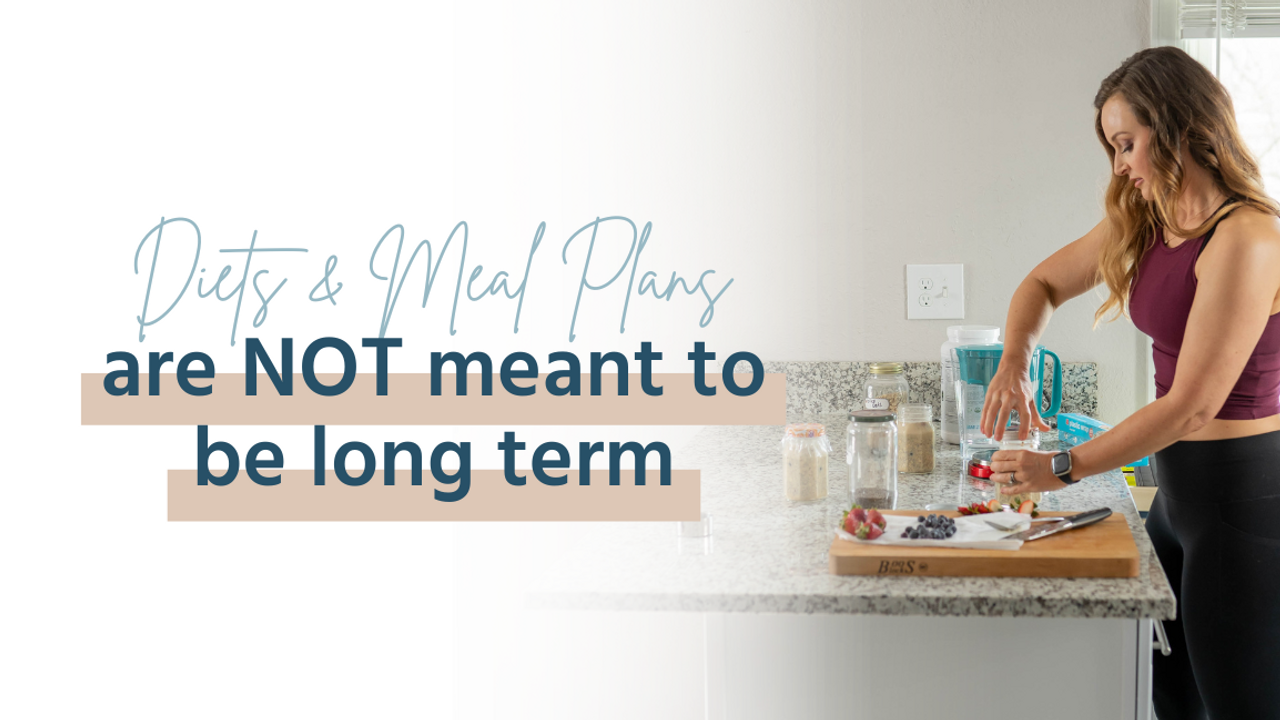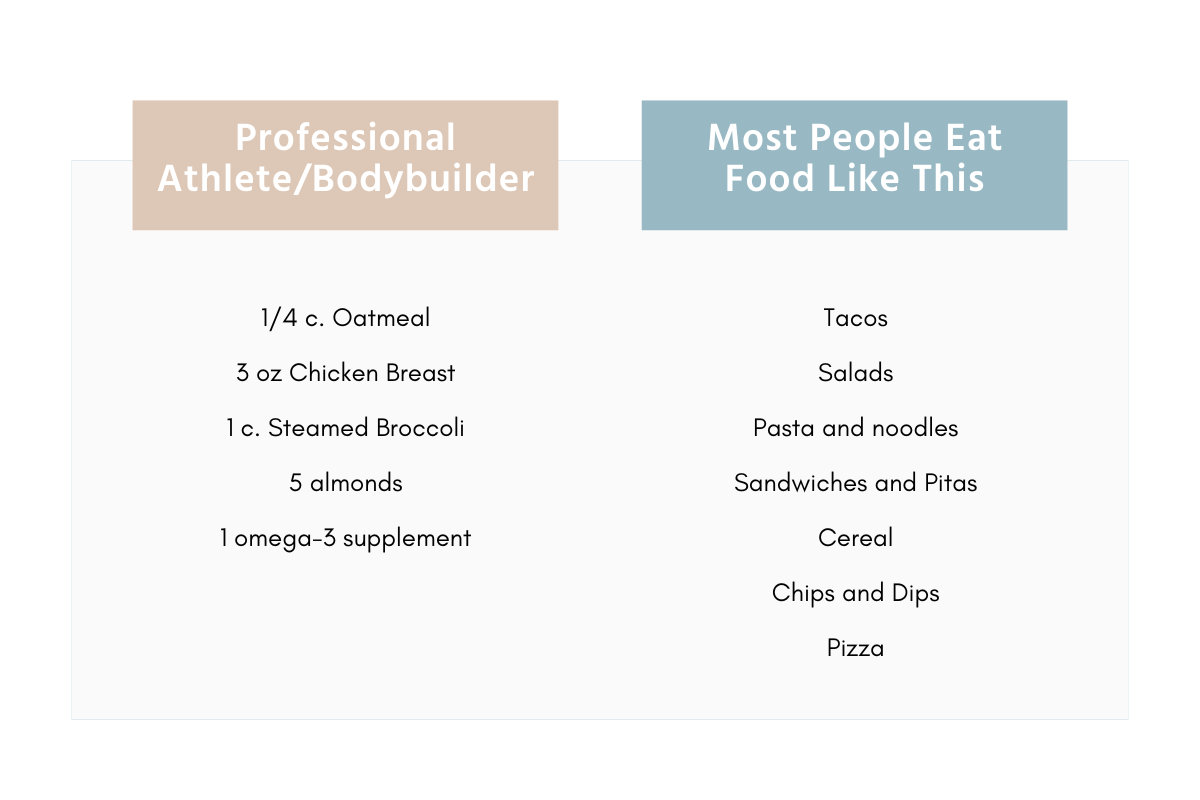Why Your Diet Is Failing You
Jan 08, 2023
You may be thinking, "but I WANT a meal plan - just tell me what to eat, so I don't have to figure it out!"
Unfortunately, when we try to follow a super-specific program or rigid prescription, many things can - and do - go wrong.
Typically, one of three things will happen with a diet or meal plan:
- You don't stick to it like you are supposed to (because we are human and have a life!)
- You follow it perfectly (but it becomes too strict for too long)
- You follow the plan for a while but don't really enjoy it, so it is not sustainable long term.
Let's dive into each of these a little more...
- You don't stick to the meal plan or diet the way you are supposed to.
Unless you plan never to get busy, always be prepared, pass up a birthday party and dinner invites, skip vacations, and stick to a schedule all day every day - LIFE will get in the way of your "perfect" meal plan.
Paying someone to create a meal plan for your life could also cause you to rebel against it.
For example, you have one slip up on Wednesday and then say "screw it" and eat crap the rest of the week!
You begin to hate that 4oz piece of chicken, despise the process, and quit altogether. You conclude that "healthy eating" sucks.
This is super unfortunate because you missed your chance to LEARN how to make healthier, more enjoyable, and lasting choices.
Learning to eat properly and make healthy choices - and indulge now and then - is a much more sustainable and enjoyable way to live!
Ok, on to scenario two...
- You follow the plan perfectly (but it becomes too strict for too long)
Strict prescription meal plans that tell you to eat this much at this time are for bodybuilders and competitive athletes.
They are meant to be short term. They are designed to help a person get to a specific short term goal (ex: drop 10 lbs). But what happens when that "diet" or "meal plan" is over?
You either go back to your old way of eating because you don't know what else to do, or you follow a plan that was meant to be temporary for too long - which could lead to deficiencies, disordered eating habits, or other health (mental, metabolic, hormonal) consequences.
Here is what happens when you go on a restrictive diet:
- The first - or maybe even the second time - you may lose a lot of weight, but consequently, your metabolism slows down, making it harder to lose weight down the road.
- If you lose a lot of weight on a restrictive diet and are not eating enough protein or building muscle, you will lose muscle mass - and muscle burns fat.
- You deprive yourself and then overindulge.
- You eventually lose motivation and gain the weight back.
Ok, moving on…
- You follow the plan for a while but don't really enjoy it, so it is not sustainable long term
Sustainability = Success
The question to ask yourself: Could I eat this way next month? Next year?
It has to be sustainable; otherwise, it won't last.
And, most diets and meal plans are typically not sustainable long term.
Most people are Yo-Yoing through life - so they are either on a diet or "need to get on the diet."
Cupcakes and kale can co-exist!
Life is too short not to eat ice cream. But life is also too short to eat CRAP all the time.
What if you NEVER went on another "diet" again?
What if you chose to eat mindfully and moderately ALL the time?
Sure, there may be times where you indulge a little more and times when you get a little stricter, but being mindful and eating in moderation is a way of life, not a quick fix.
Learn to navigate the middle ground between depriving yourself and overindulging.
The more you overindulge, the more you deprive yourself, and vice versa.
There is no getting on or off the bandwagon, no more "starting again on Monday" - You are in IT for the long haul.
Nutrients vs. Normal People Food
Ok, let's be real... We are people who eat food. We are not professional athletes getting paid to train at the highest level of eating nutrients.
Our diets should NOT look like theirs...

We do NOT need that level of precision. We don't need to measure everything, count our almonds, and eat "ounces." That is over-kill. It is obsessive when there is no need. And it is rather weird.
Here is the KEY: Think about what you already eat and how you can make it a little better!
Make small changes to what you normally eat and enjoy - ONE SMALL STEP AT A TIME!
The goal is to eat in moderation and still be satisfied with your meal.
So if you are not satisfied with your meals, find the middle ground that makes your meal still some-what healthy and enjoyable. You do NOT have to eat foods you hate - you should enjoy your meals.

